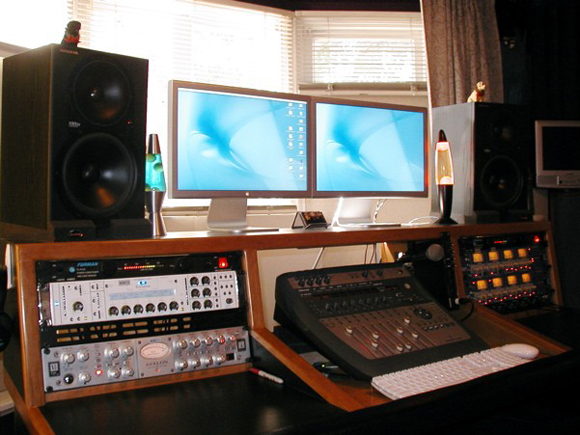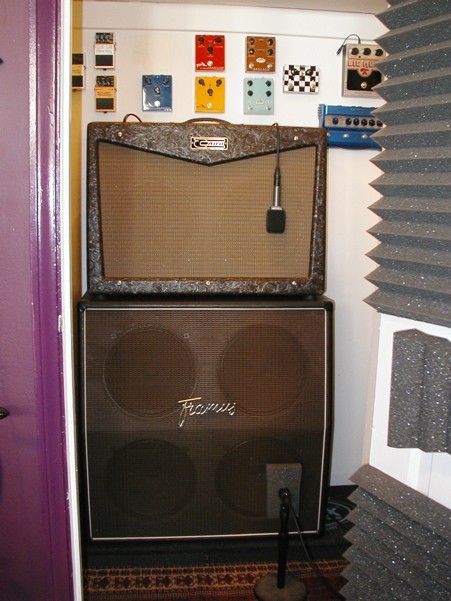So you’re finally ready to record your songs in a “real” studio. What kind of preparations do you need to make? Let’s start off with basic guidelines that get us up to the point of pushing the red record button!

Recording Studio: Command Center
For the singer songwriter there are a few items to check. When I’m producing a solo artist who plans on adding the rest of the instruments later, I set up a vocal mic and plug the guitar straight into the board. This is called the “scratch track”. It will be erased down the way so the quality isn’t overly important. What is important is that the artist can follow the “Click track”. This is the all important conductor which everyone will follow so it is imperative that you can play in time.
- Practice your tune to a metronome and note the setting. Remember that in the studio (even if it’s a inexpensive one) time is money and the less time you spend on cutting the basic tracks give you more time for more important things down the road.
- Put new strings on your guitar! Okay I know this is a no brainer but you would be surprise how many people are clueless and while were at it how about changing the battery in your pre-amp with a fresh one?
- Have a firm idea of how the arrangement should go. With today’s software certain things can be changed down the road and sections can be moved fairly easy but once again you?re spending time doing this and it might eat up your budget.

Recording Studio: The Amp Room
For the band many of the same rules apply:
- Make sure the band is well rehearsed or has a firm idea of the song.
- The band will more then likely have to where headphones while recording – to some people this can be a different experience especially if you’ve been use to playing live. Also you might have to record in different rooms and you might not be able to have eye contact. Make sure your endings don’t require everyone having to look at each other. Once again this is a comfort thing and depending on the size of the studio you may have to deal with it.
- Make sure all musical equipment (amps, cords, pedals, guitars, strings, drum heads) are in proper working before the session begins. I recently did a session were the bass player didn’t even know his bass was active and didn’t know he had to replace the battery! I was like, “Didn’t you wonder why your bass sounded like a transistor radio?
- Make sure your drummer has no problem playing along with a “click” track. (Sometimes it’s not necessary to use a click track but in most cases it’s necessary.)
Finally, keep distractions to a minimum.
- Shut off your cell phone
- Don’t bring any unnecessary people to the studio.
- Don’t bring in drinks/food that can spill on the floor and equipment of the control room or studio.
- Keep the band chit-chat down while in the control room. It’s hard enough to concentrate without hearing about your exploits from the evening before!
The studio owner is not there to baby sit. He doesn’t care that your Mom and girlfriend thinks you’re the next biggest rock star. He’s running a business! If you act professional you will get more work done. Moreover, the smoother the session goes, the more out the studio owner might be to letting you do extra tracking off the clock.
Additionally, you might want to ask if you can help set up/tear down the session – this can be a great learning experience and it will help you get familiar with recording equipment and recording techniques. Plus it might get you some free extra recording time!
